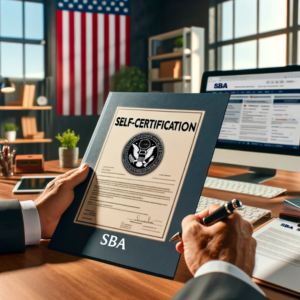 Fraud within the Small Business Administration (SBA) programs has long been a concern, particularly within the Service-Disabled Veteran-Owned Small Businesses (SDVOSBs) sector. This blog delves into the rampant fraud issues and explores the significant changes in the certification process aimed at curbing these abuses.
Fraud within the Small Business Administration (SBA) programs has long been a concern, particularly within the Service-Disabled Veteran-Owned Small Businesses (SDVOSBs) sector. This blog delves into the rampant fraud issues and explores the significant changes in the certification process aimed at curbing these abuses.
Understanding the Service-Disabled Veteran-Owned Small Business Program
The SDVOSB program is a crucial initiative that allows service-disabled veterans to leverage their status in gaining federal contracts. These contracts aim to support businesses owned by those who have served and been injured in the line of duty, providing them with valuable opportunities in the federal marketplace. The program’s goal, as set in the 2024 National Defense Authorization Act (NDAA), is to allocate 5% of federal contracting dollars to SDVOSBs.
Rampant Fraud in SDVOSB Self-Certification
Historically, companies could self-certify as SDVOSBs, claiming eligibility without formal verification. This system, however, has been prone to significant fraud. The U.S. Department of Defense Office of Inspector General reported in February 2020 that nearly $877 million in SDVOSB set-aside contracts during fiscal years 2017 and 2018 were awarded to firms that did not meet SDVOSB requirements. Such findings highlighted the vulnerabilities in the self-certification process, prompting calls for stricter oversight and verification.
Key Changes in the Certification Process
To combat fraud, the SBA has issued a rule that eliminates the ability for companies to self-certify as SDVOSBs. Here are the essential details of the new rule:
Formal Certification Requirement: Effective at the start of the fiscal year 2025, companies must seek formal certification from the SBA to be recognized as SDVOSBs. This change means that self-certified firms will no longer count towards federal agencies’ small business contracting goals unless they obtain SBA certification.
Impact on Subcontracting: Subcontracts awarded to self-certified SDVOSBs will no longer be considered for prime contractors’ subcontracting goals. This move ensures that only verified businesses benefit from federal set-asides.
Transition Period: There is a grace period for firms to comply. Companies that apply for formal certification by December 22, 2024, can continue to self-certify until their application is processed by the SBA.
The Path Forward
This rule is a significant step towards enhancing the integrity of the SDVOSB program. The changes reflect a broader trend towards stringent verification processes to prevent fraud and ensure that the intended beneficiaries—service-disabled veterans—truly benefit from the program.
Conclusion
The elimination of self-certification for SDVOSBs marks a pivotal shift in safeguarding the integrity of federal contracting programs. As companies transition to formal certification, it is crucial for SDVOSBs to stay informed and compliant with the new requirements. This change not only helps in rooting out fraud but also reinforces the commitment to support genuine service-disabled veteran-owned businesses.
For more information on how to navigate the new certification process or to ensure your business complies with the latest regulations or if you know of a business that is skirting the regulations, feel free to contact our firm. We are dedicated to supporting service-disabled veterans in securing the opportunities they deserve and protecting whistleblowers who expose SBA fraud.


